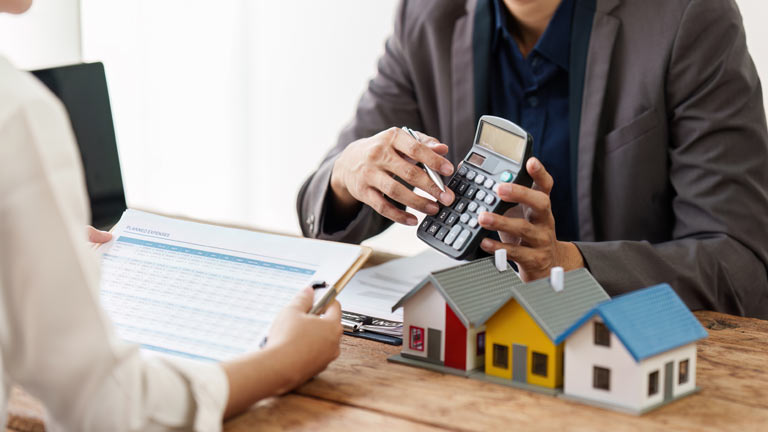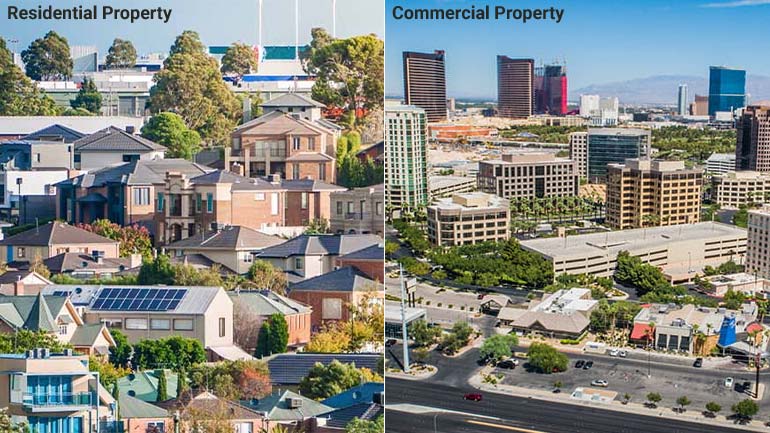
When wanting to sell your home, it can be hard to establish how the selling price is determined. Estate agents use a variety of factors to value homes, including the size and condition of the property, the location, the amenities in the area, and the recent sales of similar homes in the area. They may also use automated valuation tools or desktop valuation tools to help guide their valuation. The valuation is an estimate of the market value of the property, and it is not a guarantee of how much the property will sell for. Let’s check out how estate agents value homes before they go on the market:
Before visiting your home
Any estate agent will have already begun their evaluation before they see your home in person. They will first research the street and surrounding neighbourhood where your home is located so that they have a general idea of what the area is like. They will also check the price and sale time of similar properties in the nearby radius in order to determine buyer demand.
Neighbourhood
The agent will want to know more information about the surrounding area that your property is located in, as this will affect the overall price. They will research if the home falls within the catchment areas of local schools, and its proximity to other local amenities, such as transport links (e.g. bus stops) and supermarkets.
Walkthrough
When the estate agent visits your property, they will take notes and measurements of everything that a potential buyer would want to know, as well as the number of bedrooms and bathrooms. They’ll look for any unique selling points or appealing features that your home has, such as original fireplaces, a downstairs toilet, or built-in storage.
You should also expect to answer a few questions for the agent, such as when your windows were last replaced, how old your boiler is and its service history, if the property is sole or joint ownership and if there are any issues with the home. They will enquire about other details, such as the size of the plot that the property is built on if there is a flood risk, and what council tax band it is in. The agent may assess the mobile and broadband coverage in the home, as this may affect the willingness of potential buyers.
Recommendations
After viewing your property, the estate agent may have a few recommendations that can help boost its appeal to potential buyers. This is usually simple things, such as painting your kitchen or pressure washing the driveway to help make a better first impression.
Internal elements & decor
If your home has double-glazed windows, this will increase its value to the estate agent and any potential buyers, as they can provide savings on energy bills. Properties with hardwood floors are a popular choice that will add value in the eyes of an estate agent, as they are durable and long-lasting.
During their valuation, the estate agent will assess the status of the interior decor within the home. As potential buyers will much prefer to have modern or recently renovated decor, the agent may recommend that anything dated be replaced.
Tenure
If your property is a leasehold, you should be ready to tell the estate agent how long is left on the lease, as a short lease may decrease the value of your home. You should also inform them of any ground rent and service charges when they arrive to complete their valuation, as well as who owns the lease for the property. This is usually the case for flats and apartments, as you own the property but someone else owns the land or the building.
Kerb appeal
Buyers can decide how they feel about a home in a few seconds from the kerb appeal, so a good estate agent will provide recommendations on how this can be improved during their valuation:
● Clean, paint, or replace your front door
● Jet or pressure wash any paths and driveways
● Paint fences and gates
● Keep any lawns neat, and try to keep on top of sweeping away rubbish or other debris (e.g. fallen leaves)
● Clean the windows
● Add lighting if you do not already have any
● Ensure your doorbell works
● Hide bins away
Improvements & potential
Home improvements like extensions, loft conversions, or removing walls to create an open plan layout can help to make a property stand out from those similar in the area. If there is potential for improvements within the property, this will also be considered by the agent when valuing the property. An example of this would be if you had planning permission granted to build something like an extension in the future, as buyers will like that this shortens the process as they do not have to apply for this themselves.
Type of property
The valuation will be affected by the type of property that your home is, such as detached, semi-detached, etc. If your property is detached, it will be worth more money than a semi-detached or terraced home that is the same size. If you have a flat, the agent will look at the type and size of the building it is located in, as well as if the property includes its own front door, garden, or parking.
Kitchen & bathrooms
Modern or newly fitted kitchens and bathrooms can add a lot of value to a property, as an estate agent will be aware that a buyer would preferably not want to pay to replace these themselves. The agent will make notes on the design and facilities within your bathroom, and the number of bathrooms that your property has.
When evaluating the kitchen, an estate agent will look at the layout of the room and the amount of worktop space that is available. Features such as kitchen islands or breakfast bars can increase value as they are highly sought after. The agent will also ask if you plan to leave any white goods behind when you move out. If you are not taking these with you, their condition and age will affect the value of your home.
Condition of the property
One of the most important things for an estate agent to look at when valuing a property is its condition. They will check how structurally sound the house is, checking for cracks in the walls or any signs of subsidence. The state of the roof tiling and guttering will also be inspected, as any repair work needed will affect how they value the property. Inside of the home, they will check for any issues with dampness, as these would likely need to be resolved before the property goes on the market.
Outside (parking & garden)
During their valuation, an estate agent will ask about how easy it is to park close to the property. Ideally, most buyers prefer somewhere with off-street parking such as a garage or a driveway. However, if this is not guaranteed, they will want to know where they can park and if a permit is required, especially in more urban areas.
The agent will also want to inspect the outdoor area that the property may have, and if this is a sizable garden or a patio. The aspect of this will also be taken into consideration, as south-facing gardens can be worth much more than others. The final value will be affected by the level of maintenance that the outdoor space requires, as anything that needs too much effort may put off buyers.
It is often worth having several different estate agents carry out valuations to give you a better idea of what buyers’ expectations are and where you could potentially make minor improvements to add value. Valuations should not take too long, and it is best if you are present during the process to answer any questions the estate agent has.




